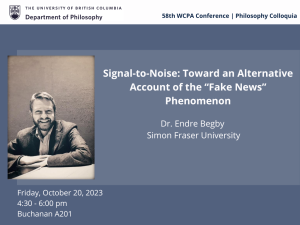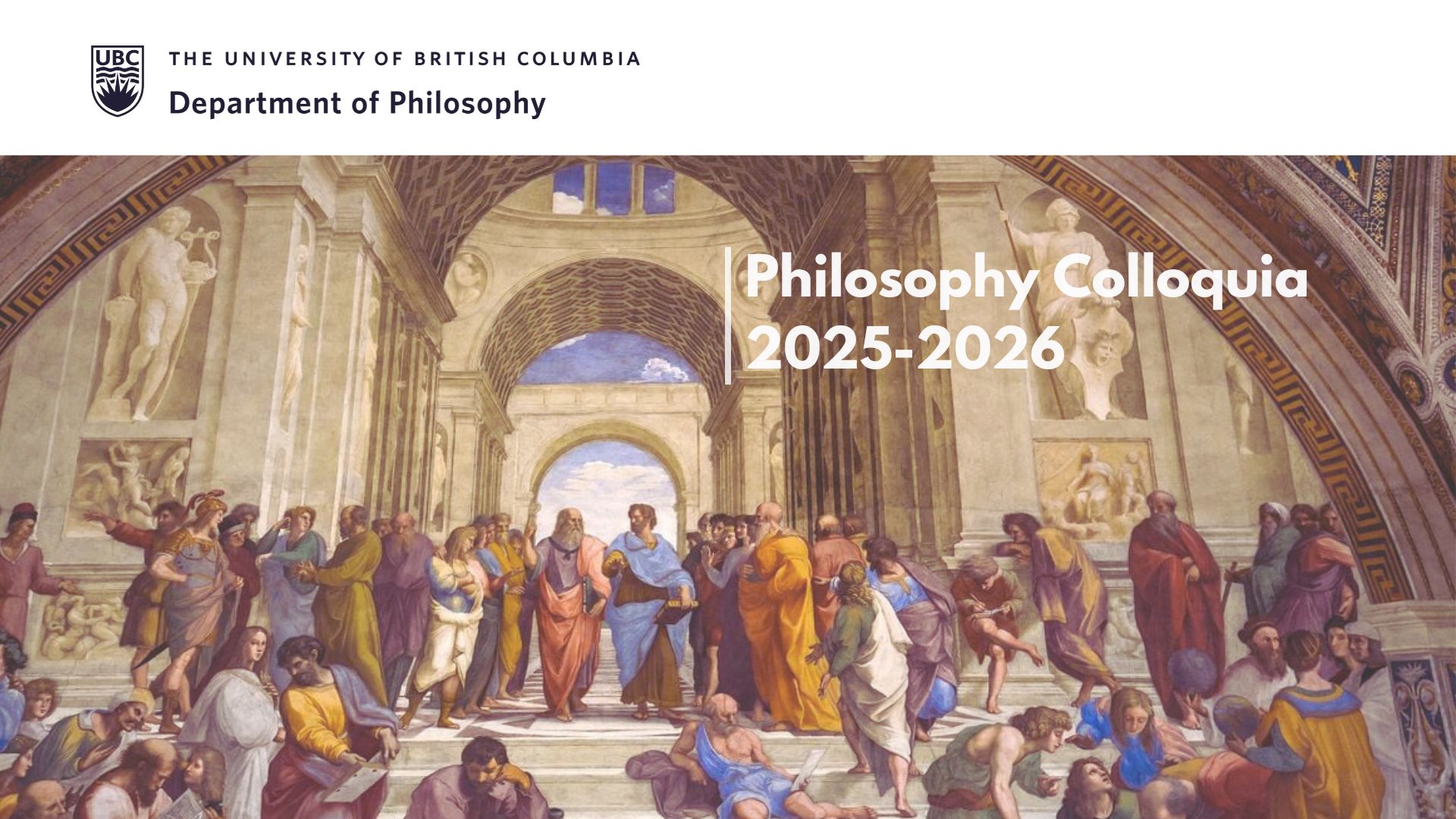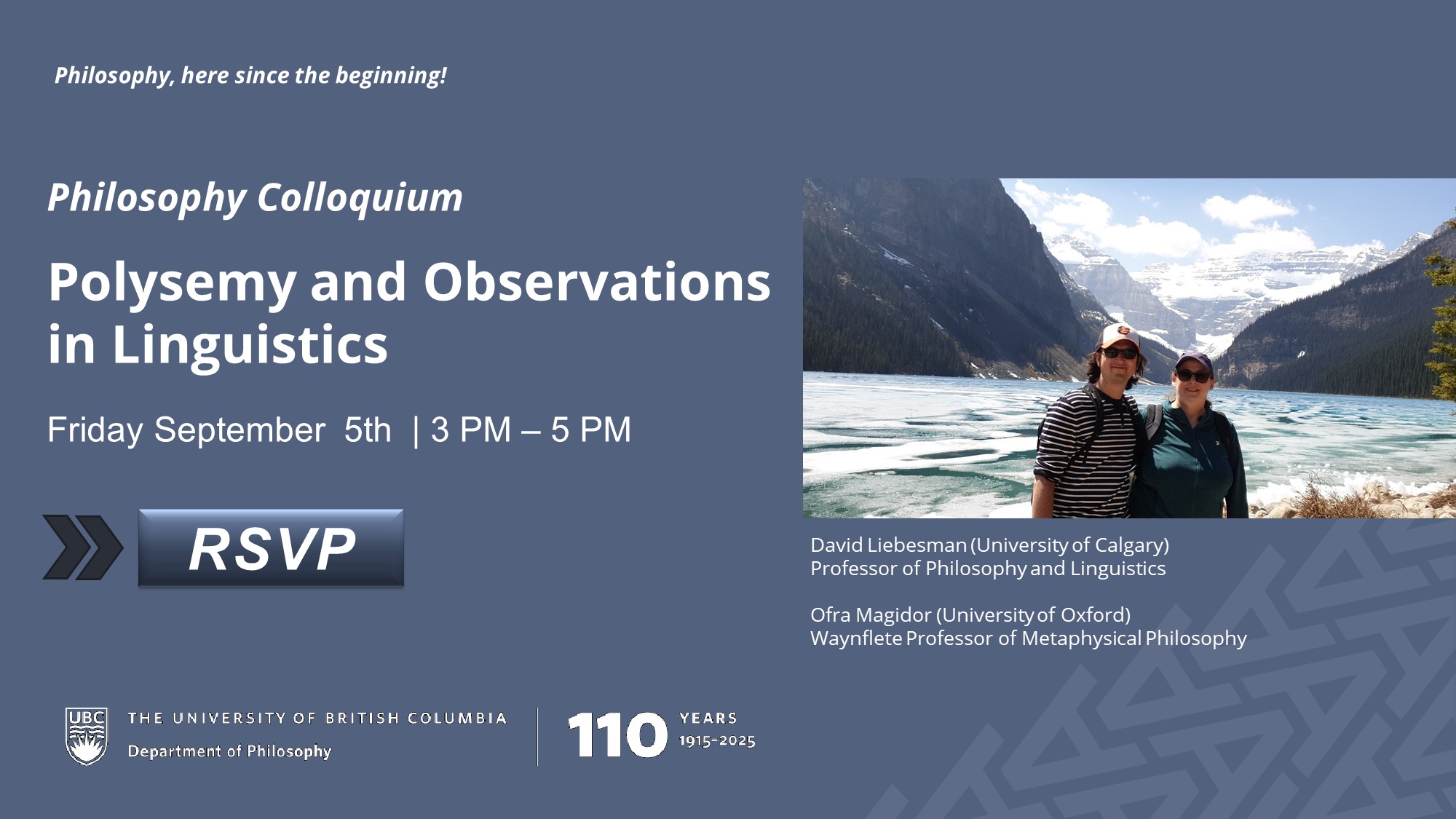

The Department of Philosophy is pleased to invite you to the 58th Western Canadian Philosophical Association (WCPA) annual conference-cum-colloquium lecture. The keynote talk will be given by Dr. Endre Begby, Professor of Philosophy at Simon Fraser University.
Dr. Endre Begby has wide-ranging interests in philosophy, but most of his work focus on issues in social epistemology, on the cognitive underpinnings of language and communication, or in social and political philosophy.
Talk Title:
Signal-to-Noise: Toward an Alternative Account of the “Fake News” Phenomenon
Abstract:
Typical discussions in philosophy and elsewhere work on the assumption that Fake News targets our democratic processes by way of exploiting known weaknesses in our individual epistemic defenses: taking aim at our naïve and gullible patterns of news consumption, it aims to trick us into adopting new false beliefs, or, minimally, to become less confident in the beliefs that we already have. In short, Fake News is designed to persuade, or else, to confuse, to sow doubt, or instill skepticism.
This paper explores a different approach to the phenomenon: Fake News can have a detrimental impact on our democratic processes without persuading or confusing anyone, simply by driving down the signal-to-noise ratio in our information economy. It can thereby contribute to wide-scale disengagement from the most inclusive platforms of information sharing in favor of more selective engagement on platforms where one can expect a higher signal-to-noise ratio. As a result, our public deliberations become less inclusive, less representative, plausibly fanning processes of belief polarization, with predictably negative effects on our baseline democratic processes.
I argue that this account fits better empirically with much of what we know about the FN phenomenon and also draws attention to issues that typically fall under the radar of discussion. In particular, it calls into the question the discourse centered on creating public awareness of a “Fake News epidemic”: by encouraging us to think of our fellow citizens as “disease vectors” in the spreading of disinformation, such rhetoric entrenches the idea that we would do better, epistemically speaking, by significantly shrinking our “epistemic bubble” – i.e., the set of people in whom regularly place our epistemic trust – to the point of its becoming a reinforced “echo chamber.”

